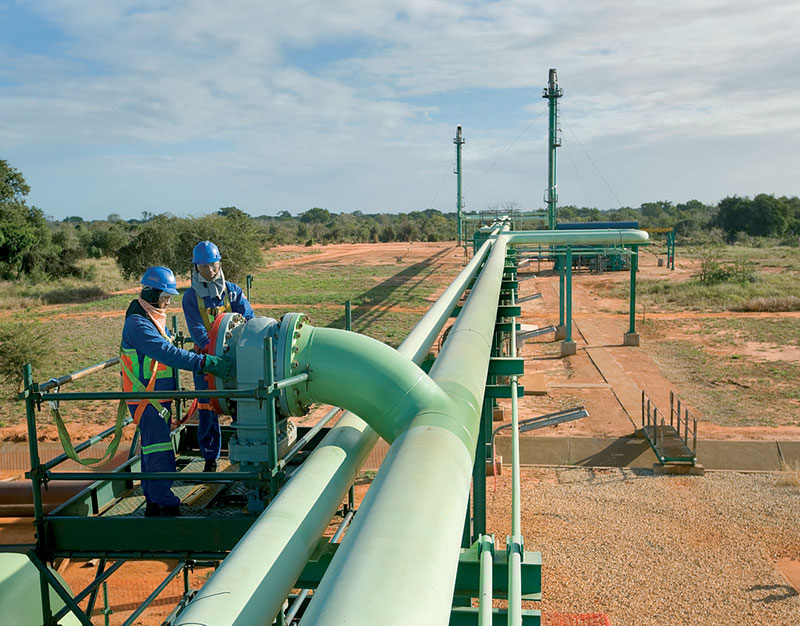First Renewables Begins Flow of Renewable Gas in New Zealand Pipeline
(P&GJ) — New Zealand's gas infrastructure reached a significant milestone with the launch of renewable gas flowing through a Firstgas pipeline, marking the country's first-ever use of biogas for residential and commercial users.
First Renewables, in partnership with Ecogas, announced that its biogas upgrade facility at the Reporoa Organics Processing Facility is now in operation.
James Irvine, General Manager of Future Fuels at Clarus, described the achievement as historic for New Zealand's energy sector. “We are thrilled to confirm that renewable gas is now flowing through a Firstgas pipeline for the first time, marking a pivotal moment not only for the gas industry but for New Zealand’s journey towards a sustainable, low-carbon energy future,” Irvine said.
The renewable gas, or biomethane, is chemically identical to conventional natural gas but is produced from renewable organic waste. It offers a sustainable solution for heating, electricity generation, and transportation, while playing a key role in reducing carbon emissions.
The process begins at Ecogas' Reporoa facility, where food scraps and organic waste are converted into biogas. Through an advanced biogas upgrade system installed by First Renewables, the biogas is refined into biomethane and injected into the Firstgas pipeline network. The system also produces BioCO2, which will be used to support local tomato cultivation in nearby glasshouses.
Irvine explained that the Reporoa facility could supply enough renewable gas to power 7,200 homes while cutting CO₂ emissions by 11,000 tonnes annually. “Because biomethane is chemically identical to natural gas, no modifications are needed for gas users or their appliances,” he added.
Fraser Jonker, Managing Director of Ecogas, emphasized the broader environmental and economic benefits of the project. “Our mission is to close the food and energy loop. By transforming waste into renewable gas, we are advancing sustainability, energy security, and economic development in Aotearoa New Zealand,” Jonker said.
Irvine also highlighted that gas remains vital in New Zealand's transition to lower emissions. Its storability and transportability make it a reliable energy source, especially for sectors that are difficult to decarbonize. Gas also supports the country's electricity grid during peak demand times.
Globally, renewable gas is becoming an essential part of the decarbonization effort. In Europe, Denmark leads the way with nearly 40% of its gas grid powered by biomethane and aims for 100% by 2030. The global demand for biomethane has been growing rapidly, with more than $5 billion in investments in 2023 alone.
The announcement comes on the heels of news that Firstgas is progressing with New Zealand’s first hydrogen blending pilot, with WorkSafe granting exemptions to move the project forward.
“As New Zealand embarks on its renewable energy journey, the potential of renewable gas is exciting, with the technology playing an essential role in achieving a low-carbon energy future,” Irvine said.
Related News
Related News

- Enbridge Plans 86-Mile Pipeline Expansion, Bringing 850 Workers to Northern B.C.
- Intensity, Rainbow Energy to Build 344-Mile Gas Pipeline Across North Dakota
- U.S. Moves to Block Enterprise Products’ Exports to China Over Security Risk
- 208-Mile Mississippi-to-Alabama Gas Pipeline Moves Into FERC Review
- Court Ruling Allows MVP’s $500 Million Southgate Pipeline Extension to Proceed
- U.S. Pipeline Expansion to Add 99 Bcf/d, Mostly for LNG Export, Report Finds
- A Systematic Approach To Ensuring Pipeline Integrity
- 275-Mile Texas-to-Oklahoma Gas Pipeline Enters Open Season
- LNG Canada Start-Up Fails to Lift Gas Prices Amid Supply Glut
- Kinder Morgan Gas Volumes Climb as Power, LNG Demand Boost Pipeline Business





Comments